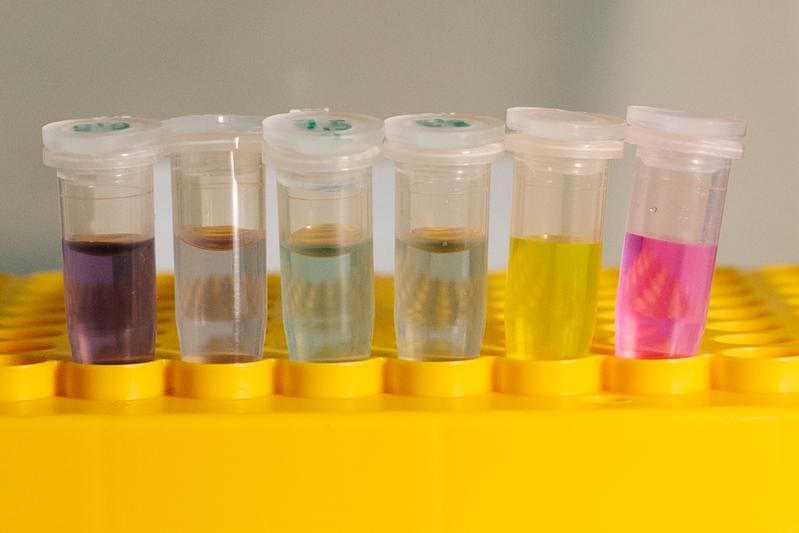Nanotube sensors for biomedical applications
Researchers at Ruhr-Universit├żt Bochum are using carbon nanotubes as sensors for biomedical purposes. The honeycomb carbon tubes glow in different colors depending on their diameter and fluoresce in the near-infrared range when irradiated with visible light. This enables the detection of substances such as dopamine, which plays a central role in Parkinson’s disease.
The nanotubes are 100,000 times thinner than a human hair and are modified with biopolymers or DNA fragments to be biocompatible. If dopamine binds to the surface, the glow changes, which is detected with special microscopes. The concentration can be measured in buffer solutions and directly from cells under conditions close to the body, despite confounding factors such as in blood. Investigations with terahertz spectroscopy explain the effect by transferring energy to the surrounding water envelope.

In personalized medicine, the technique could optimize L-dopa dosages in Parkinson’s disease, as the effect varies from person to person. A test similar to blood glucose measurement is being developed in cooperation with the Fraunhofer Institute in Duisburg, including a readout device with a mobile phone camera. L-dopa has already been detected in human serum. Other applications include the detection of bacterial or viral indicators and the visualization of neuronal communication.
Outside of biomedicine, nanotubes serve as sensors for smart plants. They detect stress caused by reactive oxygen species or antibodies against pests. Near-infrared images show stress points color-coded to enable precise measures such as irrigation or fertilization.
PREVIEW: The German Congress of Laboratory Medicine (DKLM) 2025 promises exciting insights into the interface between science and clinical practice. Under the motto “Science for Precision Medicine”, the German Society for Clinical Chemistry and Laboratory Medicine (DGKL) and the Umbrella Association for Technologists and Analysts in Medicine Germany (DVTA) invite experts from research, clinics and industry to meet on October 23 and 24 at the Congress Center Leipzig (CCL). The two-day event is aimed at laboratory physicians, biomedical analysts and decision-makers to discuss current advances in diagnostics and strengthen networks. The MedLabAwards ceremony will take place on 22 October in the Salles de Pologne.




